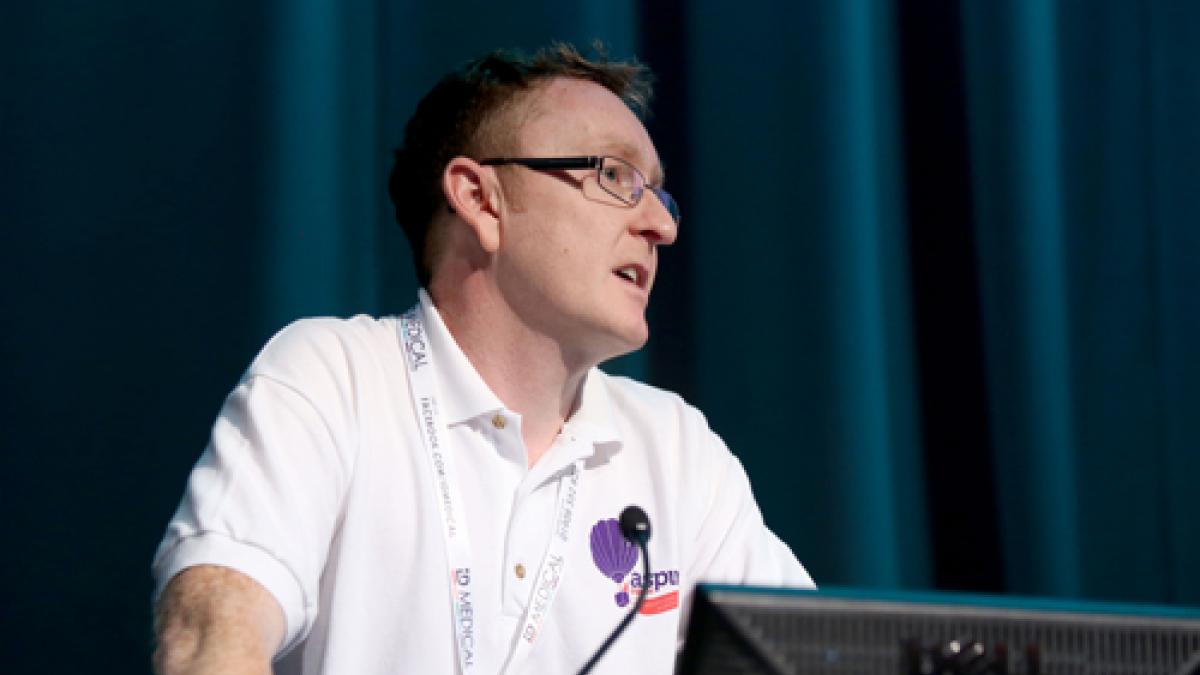The NHS should invest in the career development of assistants and give younger people more employment opportunities.

Richard O'Connell. Photo: Guzelian
This was the message from Richard O’Connell, therapy assistant coordinator and office manager at Birmingham Children’s Hospital (BCH) NHS Trust.
He told delegates about his passion for developing assistant roles, explaining that he currently manages a team of 22 therapy assistants and clerical staff.
‘Over a 10-year period we have developed and expanded from three assistants to 13 posts in seven specialities across speech and language, occupational therapy and physiotherapy,’ he said.
The Aspire programme
Mr O’Connell gave an overview of the BCH Aspire programme, which aims to give young people opportunities and includes a programme for people with learning disabilities.
The scheme started in 2013 and is designed for 14 to 25 year olds. It includes a work experience programme for school age children, internships for university students and an apprentice programme.
‘We recognise that the NHS workforce as a whole is only represented by six per cent of under-25 year olds,’ said Mr O’Connell.
‘This is significant because the NHS workforce is an ageing population and this will be a problem in the future. So we need to invest in young people.’
Employ young people with learning disabilities
In addition, delegates heard that only one in 20 young people with a learning disability secures paid employment, according to figures from the Department of Education in 2011.
‘At BCH we think that is really poor and it’s our mission is to get rid of the misconceptions around employing these individuals,’ said Mr O’Connell.
‘We currently have two students with us who have learning disabilities and we have job-carved a role for them within the assistant team. This has freed up assistants and allowed them to do further things and also develop.’
Give assistants opportunities
Addressing managers in the audience Mr O’Connell said: ‘I believe your assistants are the answer to a lot of your problems, especially with the financial constraints facing the NHS.
‘When there are recruitment opportunities look at the funding and see if you can use it differently. Give opportunities to the assistant workforce and that will allow the therapists to do more complex tasks.
‘Ask “why can’t an assistant do that job?” and,’ he said, ‘if someone says “no, they can’t” ask “why not?”’
Number of subscribers: 0